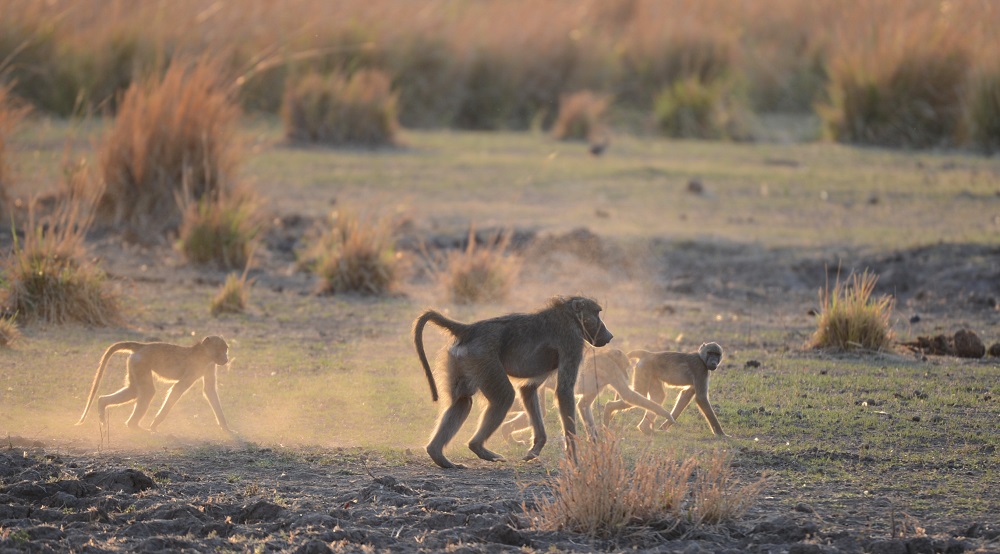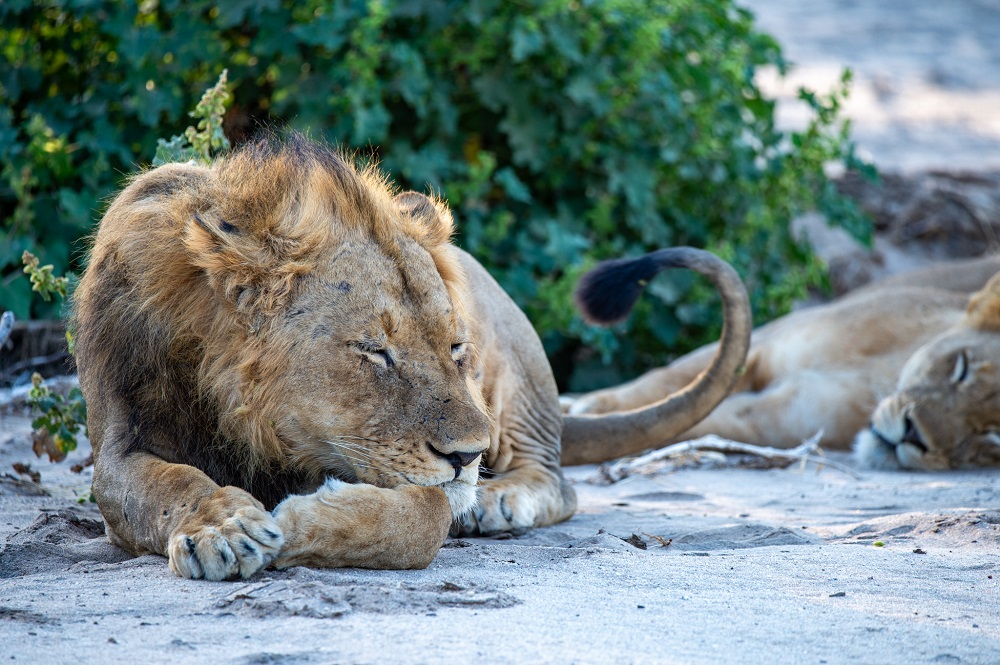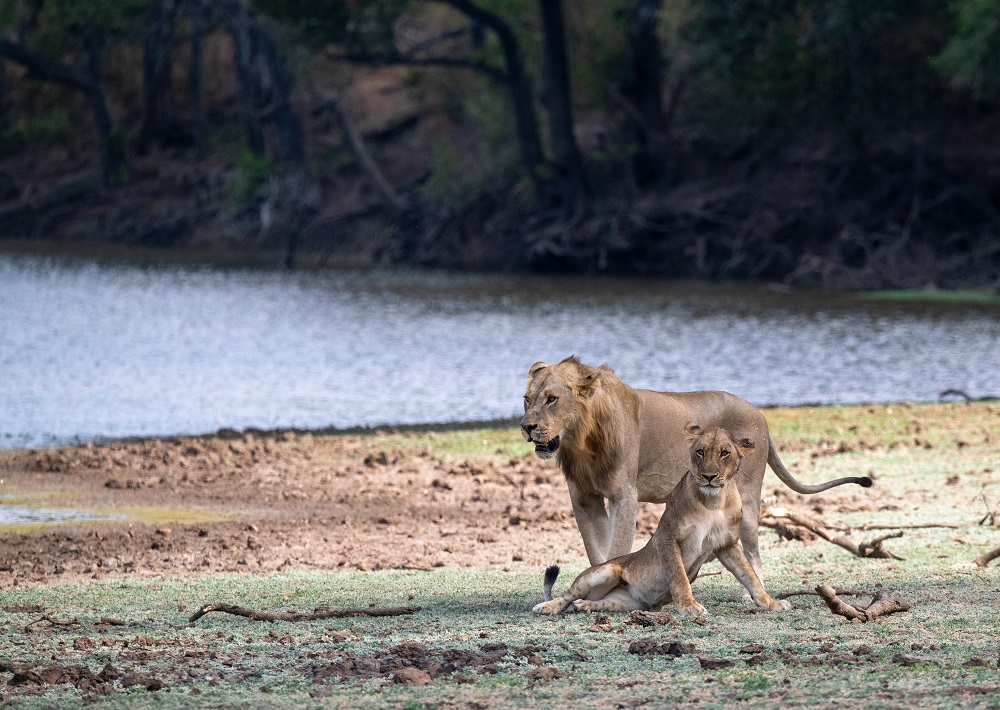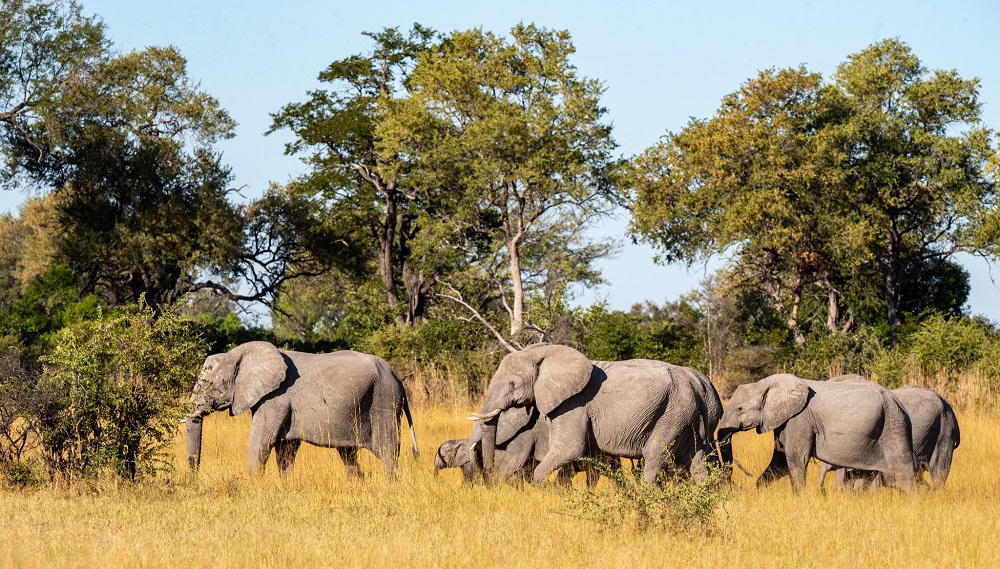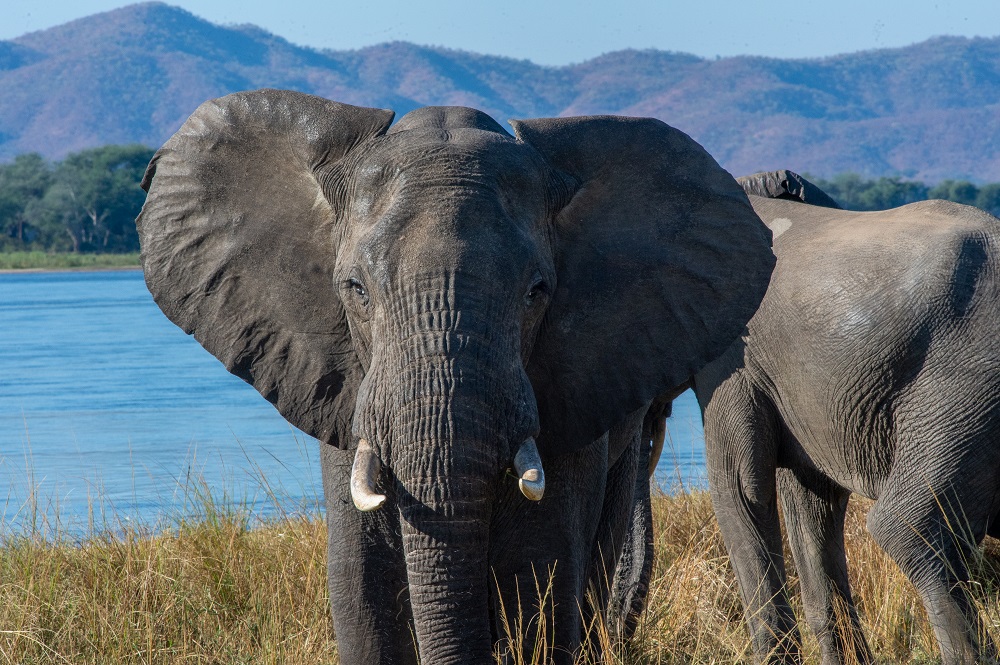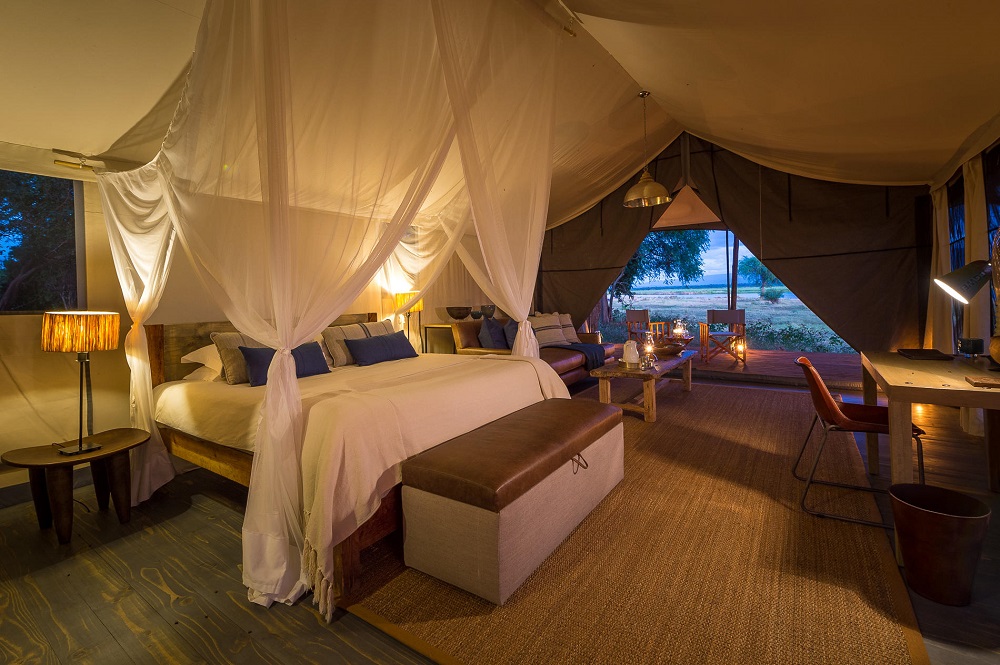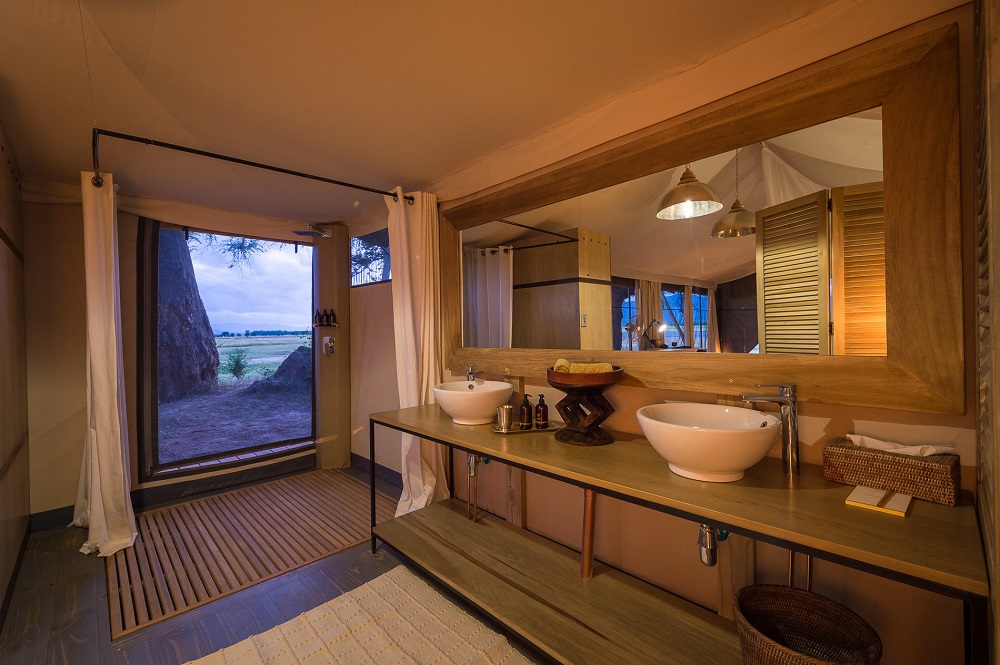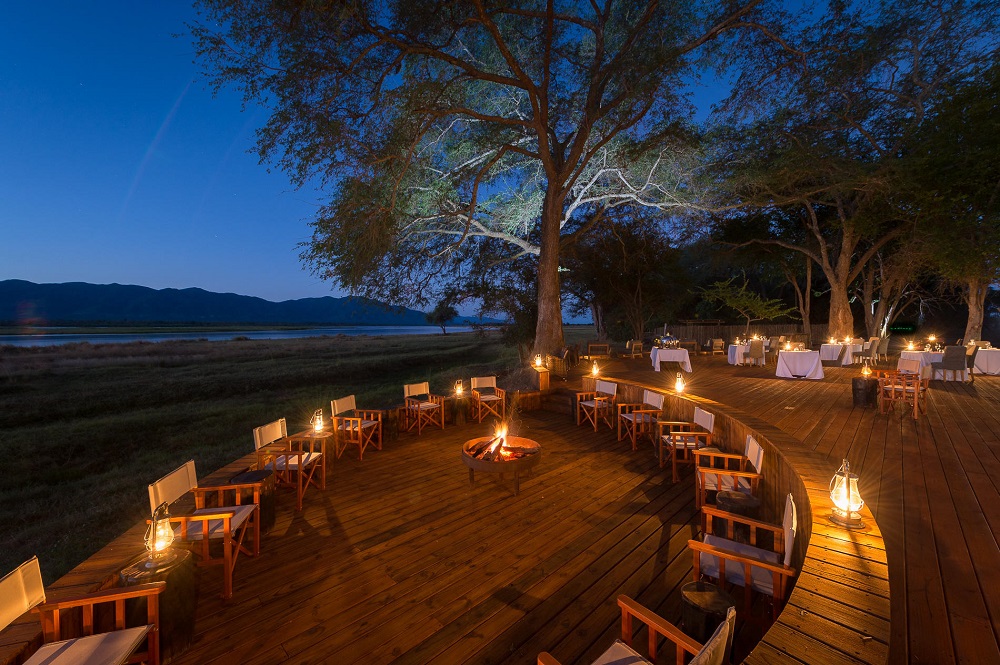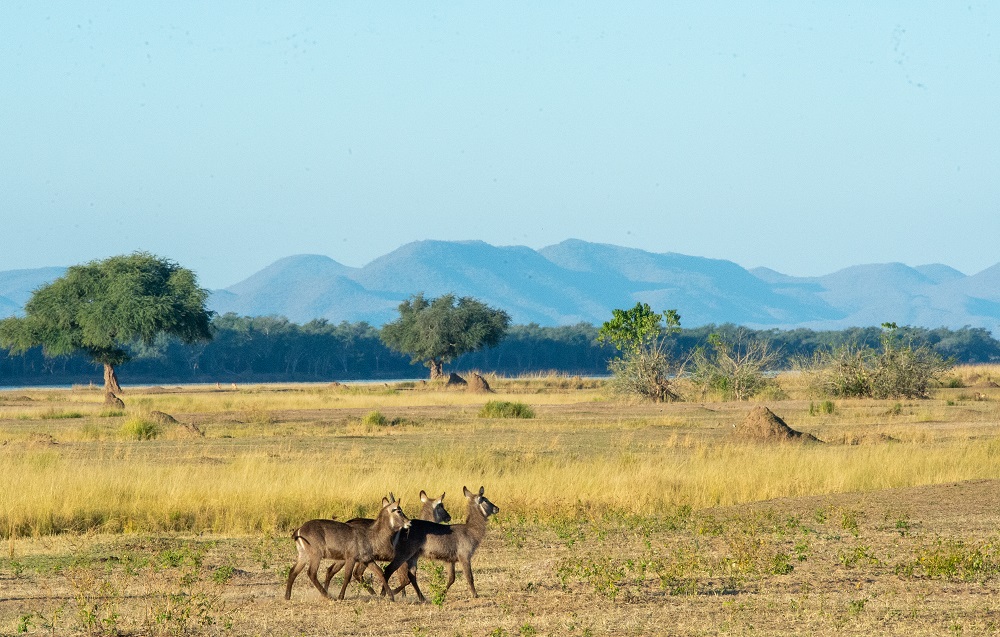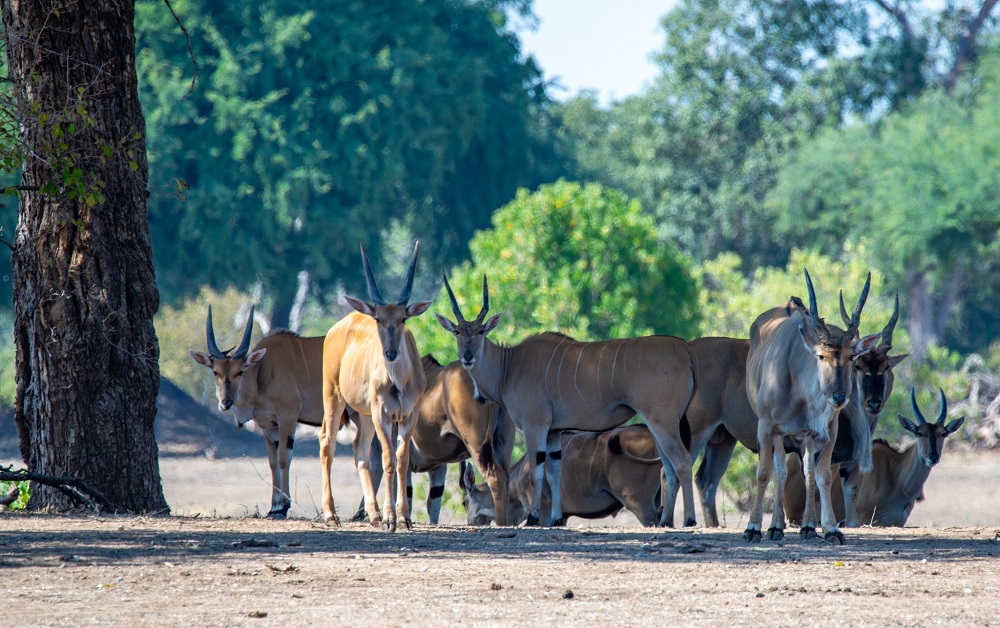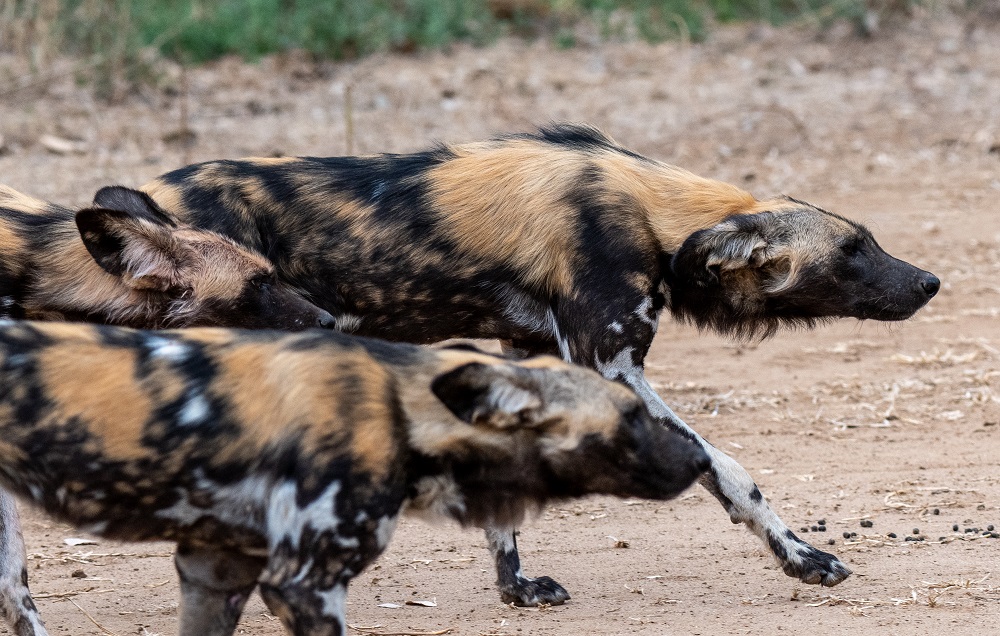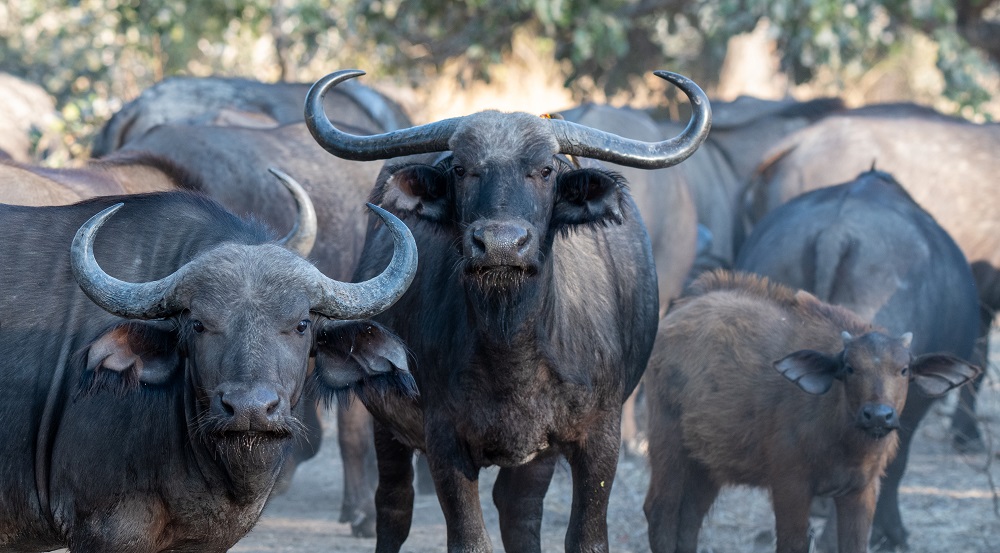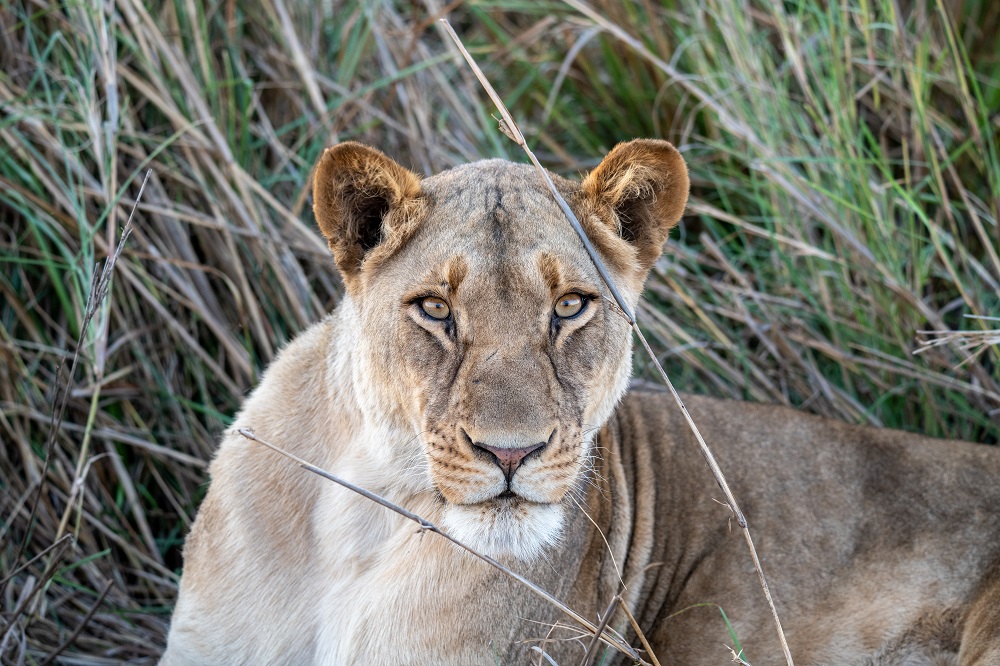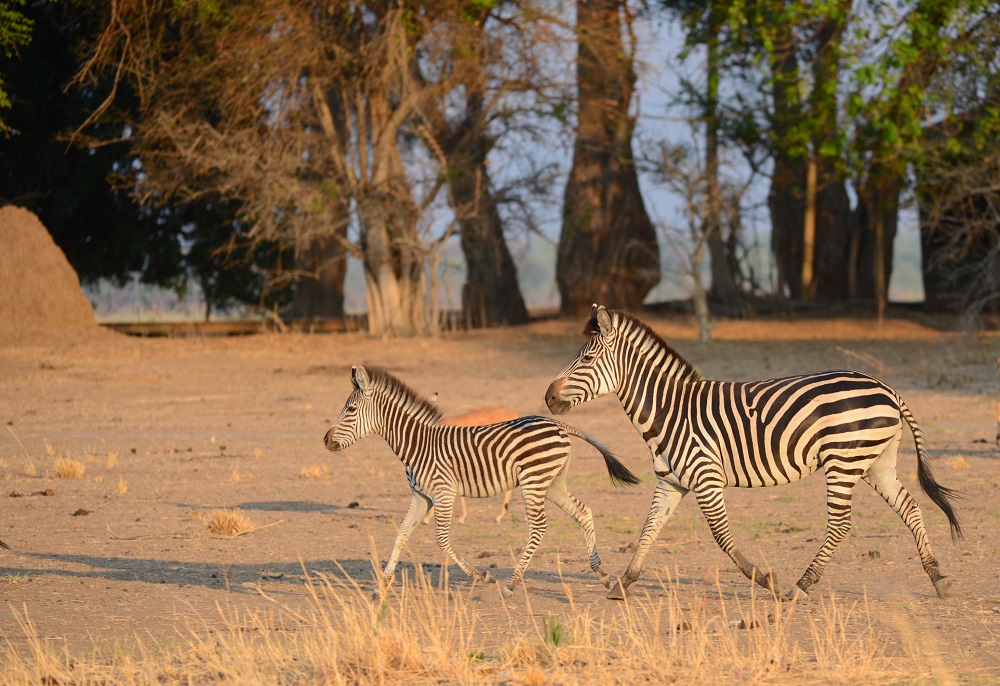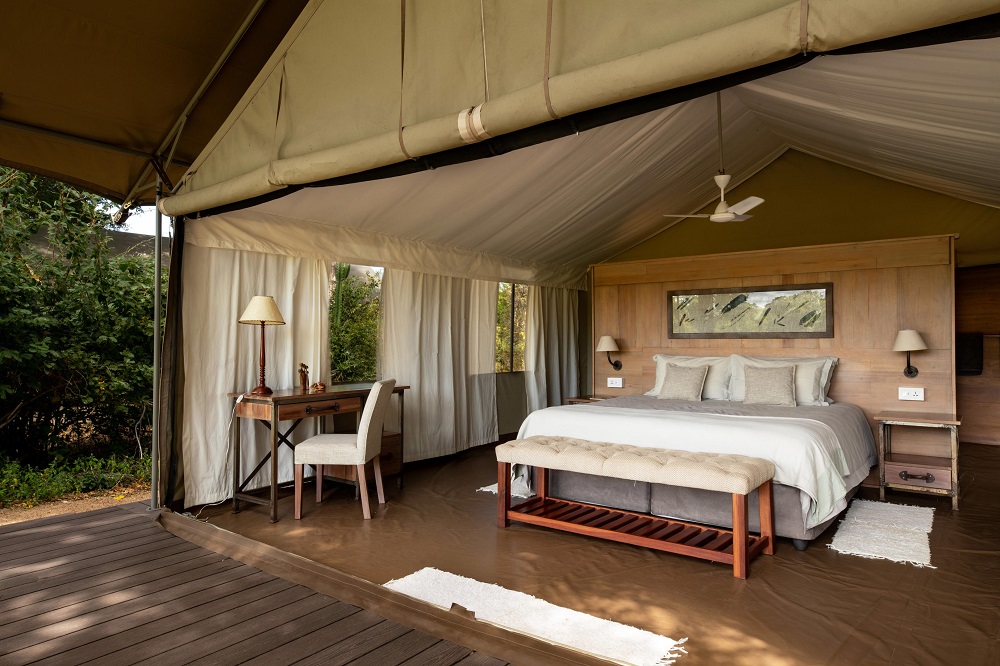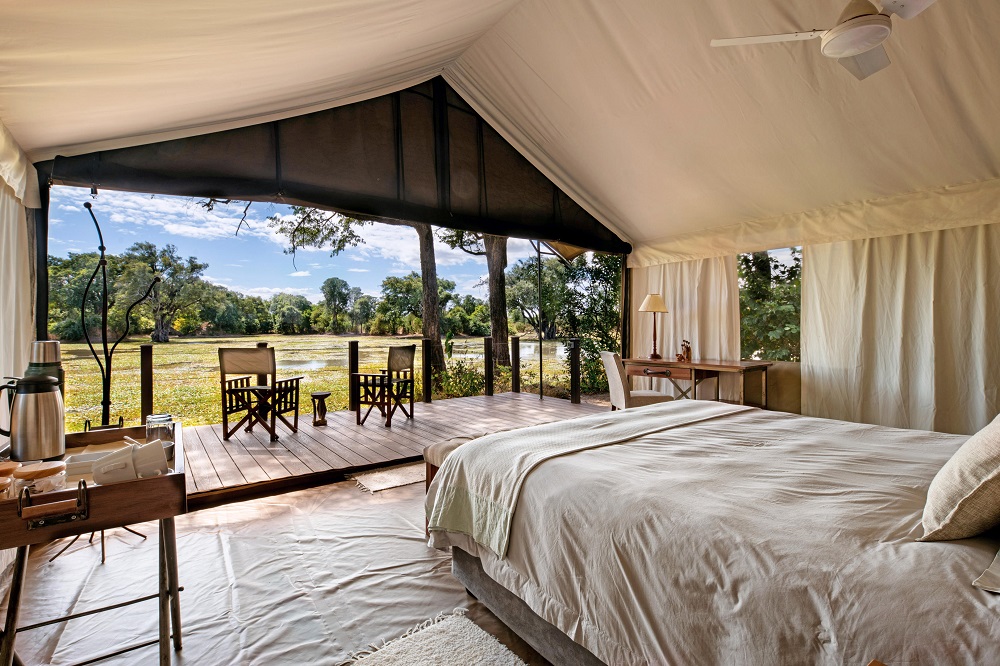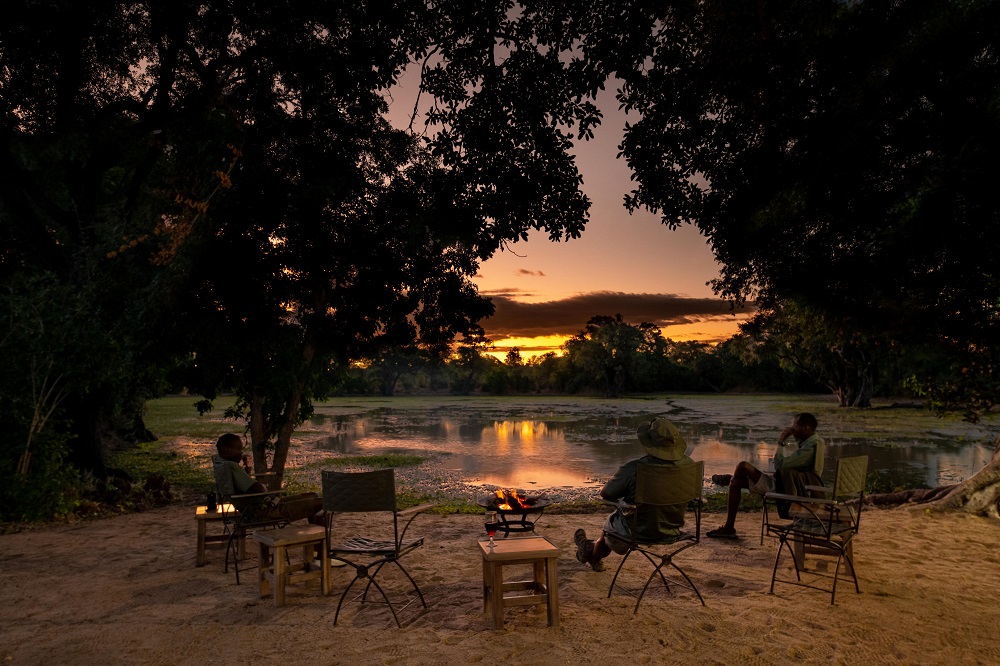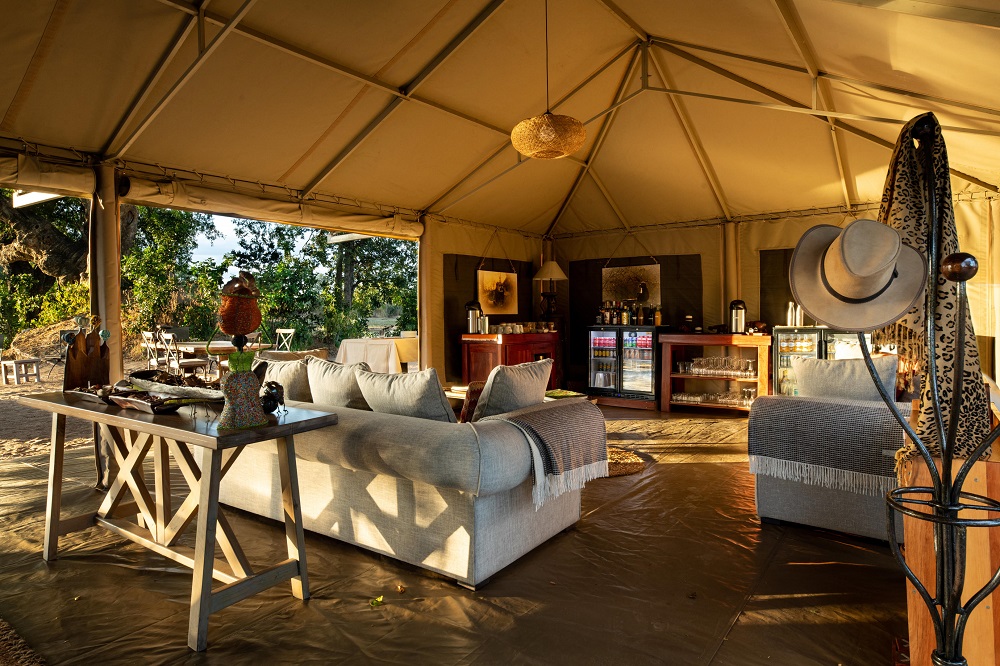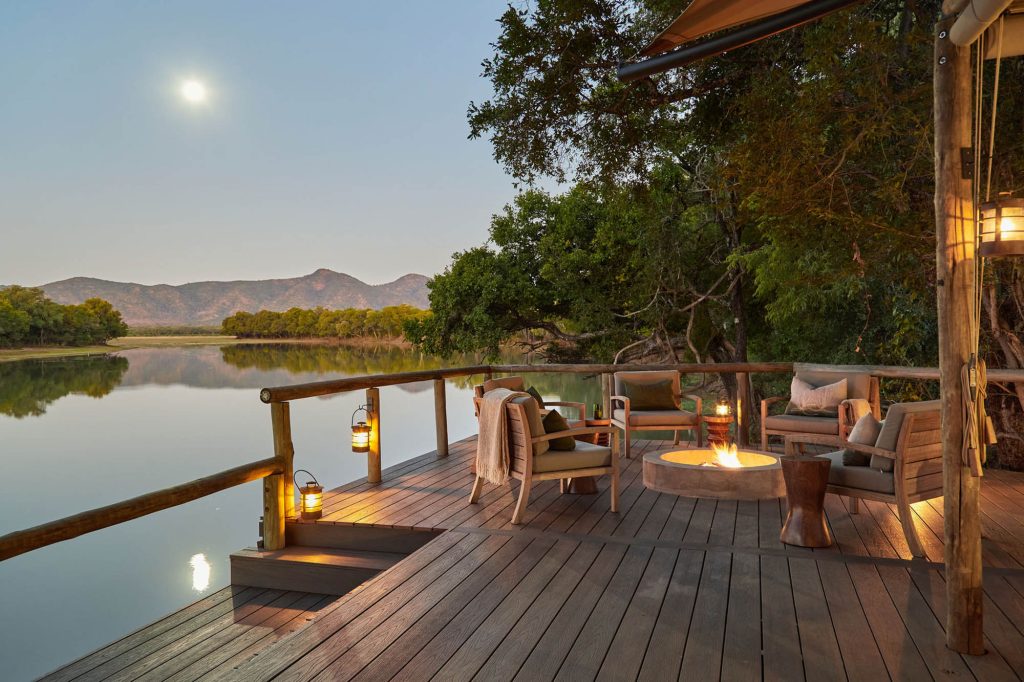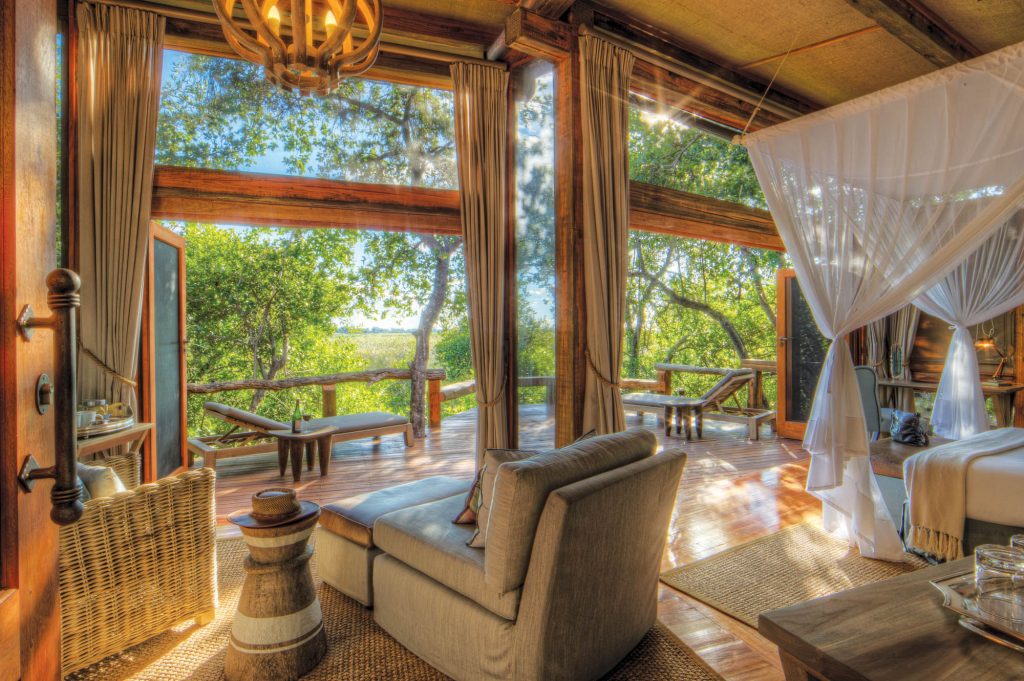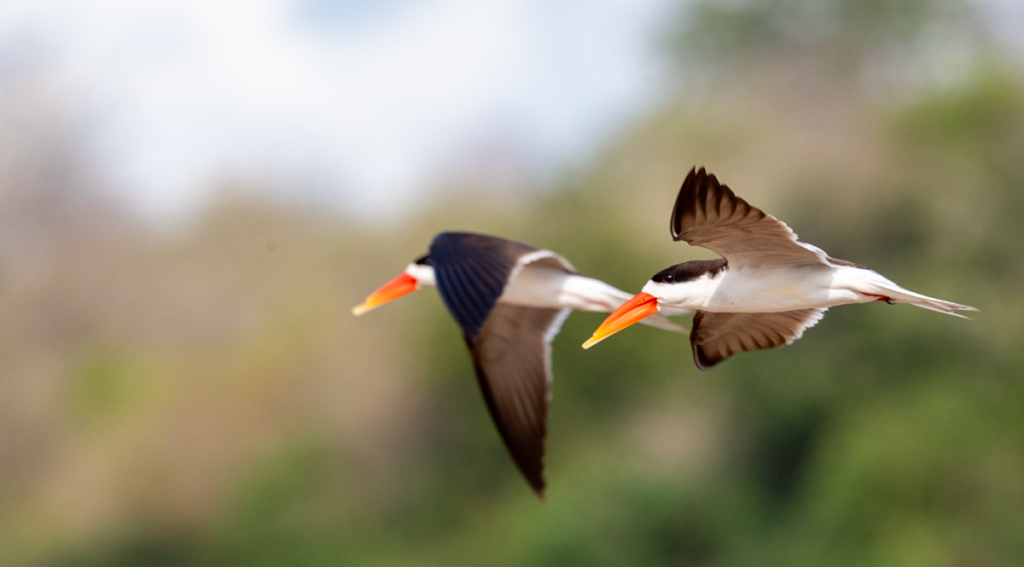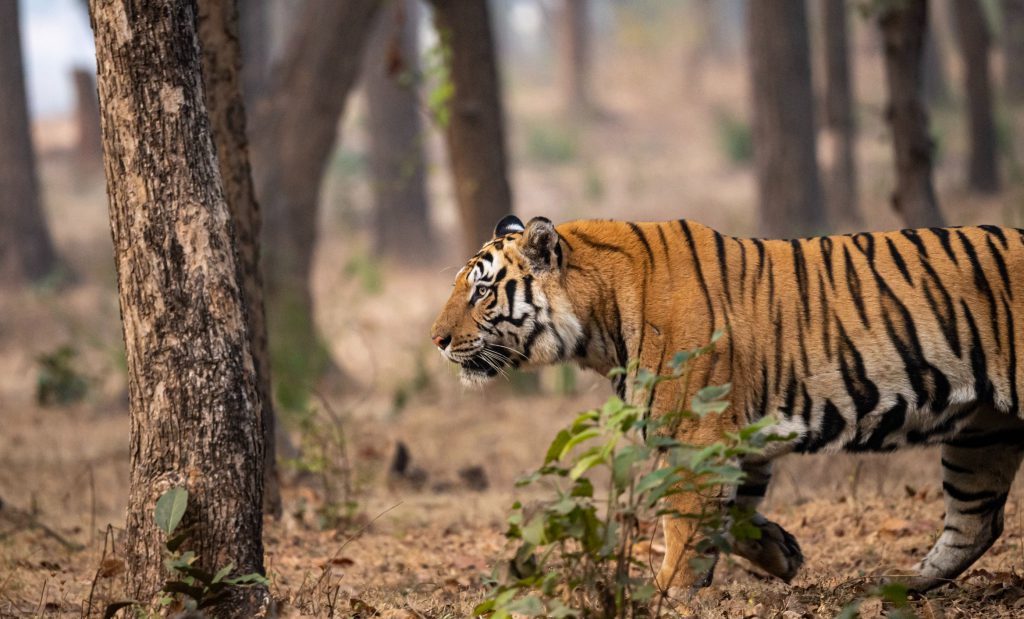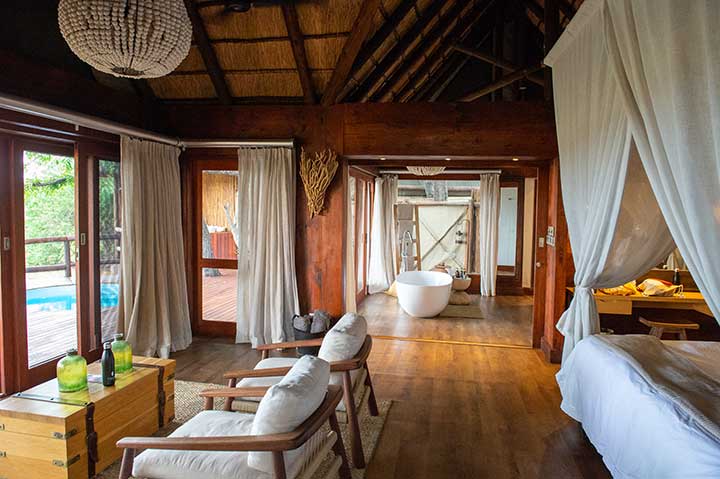Lyndon Revisits Mana Pools, Zimbabwe
Mana Pools is a near-legendary national park which lies along the lower Zambezi River in far northeastern Zimbabwe. Renowned for its game viewing (elephants, big cats, buffalo, plains game & African painted dog), the area is highly atmospheric and for many seasoned safari goers, Mana Pools is the holy grail. Being on the Zambezi and with the Zambian escarpment visible in the background across the river, the setting is very special too. Over the years, all of our team members have traveled to Mana Pools, checking out several of the properties in the area including Ruckomechi and Little Ruckomechi, Chikwenya (in its former and current iteration), John’s Camp, Vundu, Kanga and Nyamatusi. On his recent May trip with Christine, Lyndon visited two relatively new properties in Mana Pools, namely Mana River Camp and Ingwe Pan Camp. He also revisited Ruckomechi.
Ruckomechi Camp
We had an afternoon light air flight from Matusadona to Mana Pools and a short game drive on arrival. The flight was short, about 30 minutes, and scenic. The Kariba Dam was clearly visible from the air. Looking at it from 6,000 feet I couldn’t help but wonder how it has managed to keep all of that water at bay since 1959. Quite an engineering marvel. Our game drive was productive and after going multiple game drives without a cat sighting we spotted two lions not 10 minutes from the airstrip. It was a mating pair, a young male and female. They were exhausted and after observing them for a few minutes we let them be.
Just a bit later we found the brother of the male lion we had just seen. And he put on an absolute show giving us a roaring exhibition for the ages! If lions could be opera singers this guy was one of The Three Tenors. We heard him and his brothers roaring all night from the camp. Our sundowner was late due to our start time and our guide Faidon prepared it for us while we sat in the vehicle after the sun had already gone down. As he was preparing the drinks and snacks some elephants ran by us in a hurry responding to a call from one of their babies. Faidon is an impressive person having spent 42 years with African Parks before deciding to become a guide. 42 years! And he is so enthusiastic about wildlife.
Our activity ended with some spotlighting and we were very fortunate to see several genet cats and a serval, only the second one spotted by the camp so far this year. On our way back to camp we spotted the business end of a porcupine and also had to turn around and take a different route because the mating pair of lions had decided to take a nap in the middle of the road. Best not to disturb them…
Ruckomechi is perched very scenically on the river with the Zambezi escarpment in the background and surrounded by several very tall and shady trees. Hippos can be heard at night. During our dinner we had a couple of elephants walk right past the front of the camp. They tend to move around the area often, so escorts to and back from guest tents are mandatory when the sun is not up. Dinner was roasted chicken and garlic with rice and veggies served with rice. The soup was a tasty mixture of tomato, celery, and apple and dessert was a ginger tart. Everything was good.
As I discussed with my wife, the rooms are right out of goldilocks and the three bears. Just right. Just the right size, just the right amount of decoration and luxury, not too much and not too little. Everything that you need and maybe only a few things you don’t as well. It had been a very good start in Mana Pools.
The following day we did a couple more game drives and while they were not quite as productive as our initial one, they still delivered. Of course, we saw all the general plains game and a good amount of elephants and additionally we saw the lions a few more times. We were able to observe a small herd of eland and later a lone gigantic eland bull at a very close range, a rarity as they are usually shy and will run from vehicles. We briefly spotted the elusive honey badger as it ran across the road on its way somewhere in a hurry. During the afternoon we had a family of elephants walk through camp right by the tents, including ours.
*Camp photos courtesy Wilderness Ruckomechi
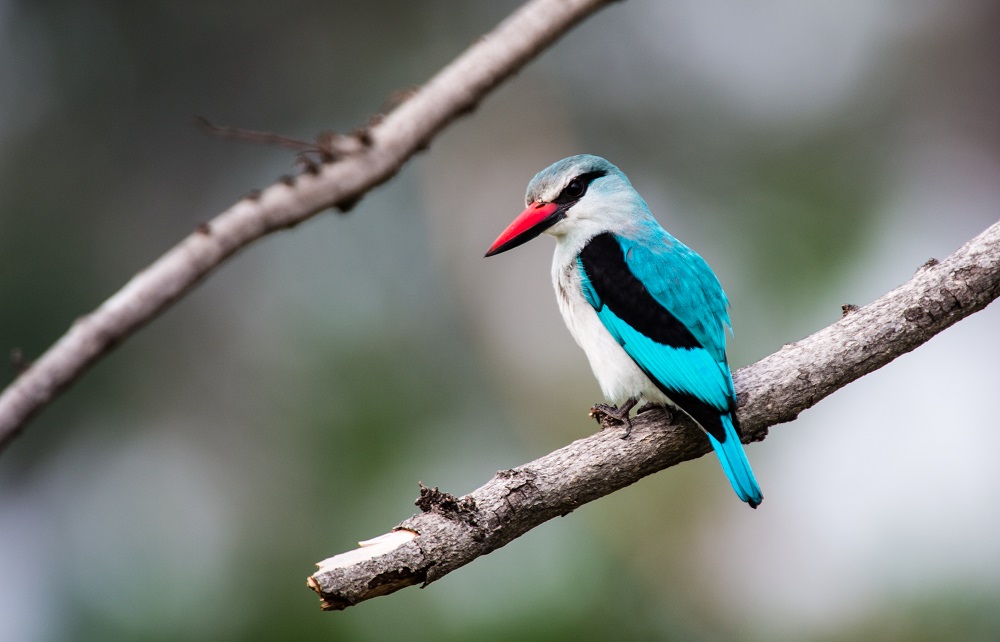
Mana River Camp
After our two nights at Ruckomechi we were scheduled to take a boat transfer down river to Mana River Camp. Pick up was 7 in the morning so we had a normal wake up routine and headed out to the beautiful main area to take in the views and enjoy some breakfast while we waited. After a short time we heard a boat engine and got ready to take the short drive to the ‘dock’ area. But then the sound disappeared, and we were left waiting for another half hour to 45 minutes. Eventually we saw a boat drifting downriver, powerless. The captain was actually rowing. Our transfer boat had broken down. Ruckomechi quickly reacted and sent a boat of their own to tow in the vessel and we were told another boat would come but it would not arrive for another 45 minutes. No big deal and our guide decided we had time to go for a quick game drive. Good thing we did because we managed to spot a couple big male lions! This kind of quick thinking is one of the reasons we love Africa. Things might go wrong but the people are resourceful and we can sleep better knowing that we and our clients are in good hands.
Once our new boat arrived we were radioed and headed over from our game drive to the dock. This boat was a bit smaller and had no roof but I think it must have been a bit quicker too. We zigzagged a bit down the river, the captain sticking to the deeper water as best he could. Soft drinks and bottled water were provided for us. It was quite an enjoyable voyage although we were heading directly into the sun and were moving too quickly to confidently wear hats. So we definitely received a little sun. In all, the transfer probably took an hour. We were dropped off and met our new guide, Richard, who was waiting for us at the designated pick up spot. After a quick trip to the National Parks office we were off on a drive in search of some lions that had just been spotted with a fresh kill.
En route we had a fantastic up-close viewing of a woodland kingfisher, quite a colorful and handsome bird. Richard said he had never been this close and was excited about the picture he was able to take. You know it’s good stuff when the guide takes out their personal camera.
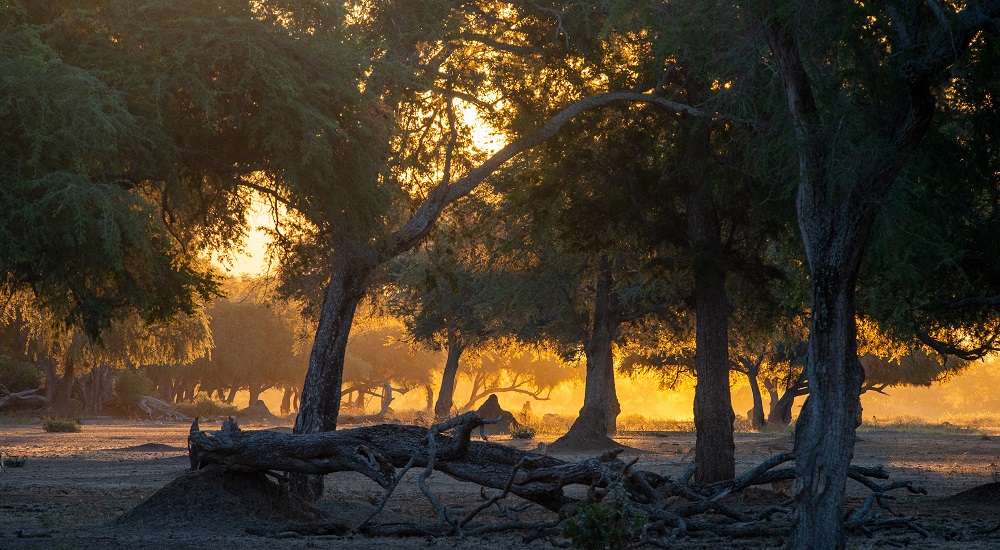
The setting in Mana Pools could be described as quintessential Africa. It looks just like you picture it. Or at least how I do. Tall trees sprinkled in amongst open spaces and short grass. Sandy dirt roads that wind up and down and across dried up streams where you are thankful that the guide has a land cruiser. Green leaves and long dead and dried up stumps. A picturesque floodplain with a mountain range on the other side. In a setting like this it can be fun to simply be a passenger and be driven along for a while at times. Animals are present but there are quiet stretches that remain enjoyable.
After driving for a while, we arrived at the scene where the lions had taken down what looked like a big eland. The lions were as full as I have ever seen, the males comically so. There is a hierarchy when feeding and the large males eat first and can really gorge themselves. One in particular looked like if he had laid down on a hill he would have rolled to the bottom. It was around noon and hot outside and they were all panting heavily. I think we have all been out for dinner and had some regrets about eating too much… We spent some time observing them before heading back to camp.
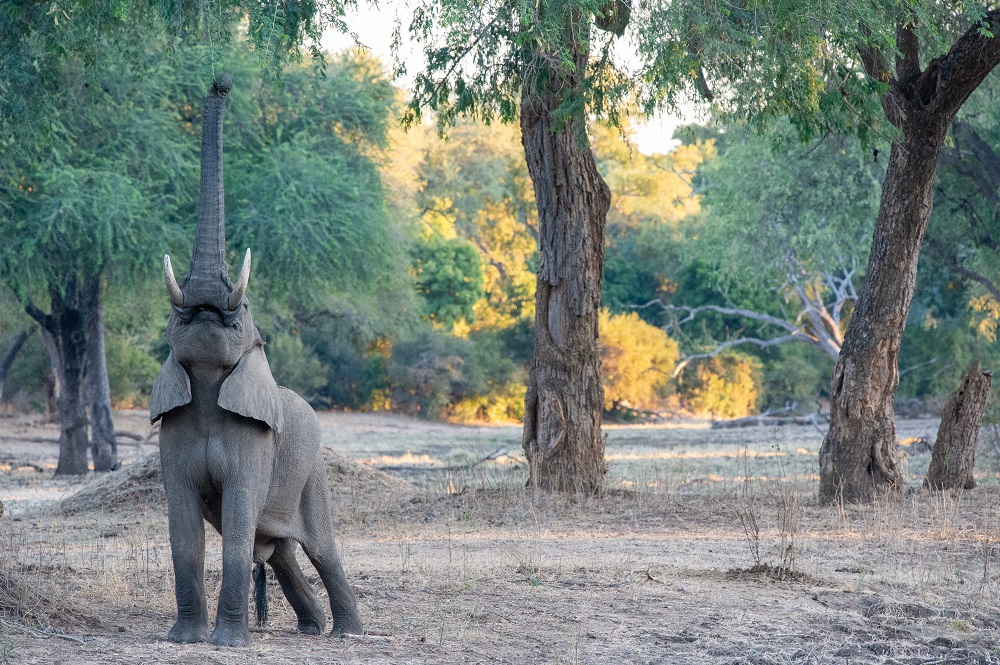
Mana River Camp is an adventure level camp so it is rustic but has all the basics that you need in the bush. Electricity, check; running water, check; comfortable bed, check; good food, check; and most importantly friendly and thoughtful service, and high-level guiding. Check and check. The location is pretty special too with the camp about 12-15 feet up overlooking a nearby island right on the Zambezi. There are plenty of large trees here to help shade the tents and keep the temperature bearable. All the rooms have a standing fan as well. There is WiFi but it has been inconsistent so I wouldn’t count on joining any Zoom meetings from here. Not that you will want to.
Activities here and in Mana Pools generally include game drives, walking, canoeing, and fishing. Often game drives will be mixed with walking as the guides love to drive for a while and then either go for a walk where they know there will be animals or when they see for example an elephant in the distance or something of interest. The walks can be very rewarding and a welcomed change of pace from sitting in the vehicle. You will be given instructions about following in a single file line, watch your step, listen to the guide’s instructions at all times, and of course the golden rule of the bush – whatever happens, don’t run. The walking guides here are the best in the business. It takes a long time – as much as five to seven years – to become qualified. In fact you need to go on hundreds of walks with other pro guides before you can lead them. And before you do that you need to be fully certified and trained with a rifle which the lead guides carry with them on all walks.
Our evening game drive involved such an instance where we did a drive and got out of the vehicle multiple times. Once in order to get a closer and lower to the ground view of a bunch of vultures that were feeding on the remains of a dead hippo. We followed the guide and listened when he said to duck a bit here and there to try not to disturb the birds. Later we drove to one of the four actual Mana Pools for which the park received its name. In the distance a large male elephant was walking towards us. We got out and our guide expertly positioned us to see the elephant cross us and enter the water. And with the sun behind us as well. Hopefully I got a couple good photographs. Richard is very attuned with the needs of photographers and even though I would still consider myself a novice in this regard I am confident even seasoned photographers would be in good hands.
The following day we had a walk for the ages. In the morning we headed out to find the team members who monitor access to the painted dog den sites to prevent too much stress on the animals. When we caught up with them they were in their vehicle tracking the collared members of the pack. It was apparent the dogs were on the hunt and we followed the vehicle for some time before managing to spot one of them briefly at a bit of a distance. Afterwards we went for a walk of about an hour and a half during which we saw elephants, buffaloes, and finally four lions! I had never seen lions while on foot so that was quite the thrill. It can be very rewarding to see so many animals in that kind of setting. Even while on the vehicle we noticed that there are not too many other vehicles driving around. You do see the occasional car from another camp or even a self drive group but for the most part it feels very remote.
The season in Mana Pools generally begins at the start of May so at the time of our visit it was still early in the dry season. It will be slowly cooling down through June and July and much of the wildlife will be flocking to the floodplains as food and water run out further away from the river. This year is expected to be rough as there has been quite a severe drought. Conditions in May were already more like they are in June and July in most years due to the impending drought. It should be a dramatic scene as we move on through the dry season.
For our evening activity we chose to fish. Canoeing is a popular activity here and in Mana Pools in general as well. With the water level in the river being so low I didn’t think it would be as enjoyable. The fishing activity took place essentially in camp just at the other side and towards the back. We fished from a raised bank directly into the Zambezi about 12 feet below. We almost instantly received bites and before long we had both our first catch, mine a tiger fish and Christine a large catfish. Before it was all over I also managed to snag a large catfish. The activity was a blast and I would definitely recommend trying to mix in a fishing activity during your time here. It can be a relaxing way to enjoy the area in between game drives and walks.
Editor’s note: the camp actually kept the tiger and Christine’s catfish. We assume they ate the catfish and prepared the tiger for us. My goodness was that thing bony. That is what everyone says about them and I can now fully confirm. The camp manager, Shepherd, said that the usual preparation involves boiling it and letting the bones separate. Then they take the meat and fry them into meatballs. This way they don’t have to deal with all the bones.
Ingwe Pan Camp
The next morning we did a transfer/game drive to Ingwe Pan. Nothing too notable as far as animals en route but you can definitely tell the difference between the camps near the river and on the floodplain, such as Ingwe. As one moves further away from the river the forest becomes quite a bit thicker and the bushes cover up most of the gaps that you would typically find by the water. It is not usually until the end of June and July that a lot of the leaves on this vegetation will fall off making it much easier to spot animals.
Ingwe Pan camp is located in front of a pan with a constant supply of water so once all the other pans in the area dry up, it becomes the only source of water around. Even by mid May – with other sources of water still available – the pan was a productive location for game viewing. Elephants visited the water every day that we were there and actually walked directly in front of our tent on both days. Often you require a guide escort to get to your tent even during the middle of the day. Thrilling to witness the animals at such a close proximity! The main area has a really fantastic view of the entire pan and plenty of seats to take it all in. Meals are eaten here and the service staff is also super friendly so it is a nice area to spend some time in between activities. The rooms are spacious and well lit with indoor and outdoor showers and a fan above the bed for when it gets warm. I would rate them as quite comfortable, luxurious even.
*Images courtesy Ingwe Pan
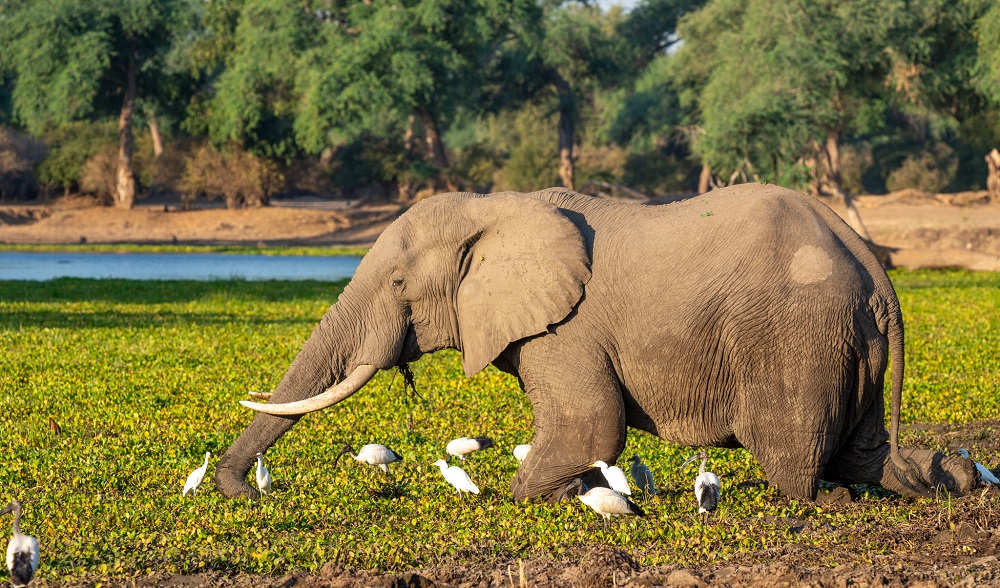
Ingwe has a small concession but is unable to conduct night game drives with spotlights as of this writing. Our guide AB took us out for a game drive in the evening and we were able to see numerous elephants at the surrounding pans as well as a good amount of plains game. For our sundowner we went to a seasonal riverbed and enjoyed the view as well as the slightly cooler temperatures thanks to the sandy ground. AB is an excellent guide and made our experience with Ingwe two for two in that regard. He is very engaging and I could listen to him talk about wildlife for hours.
The meals at Ingwe were the best we had on safari this trip. There had been some really good meals but by the end of our stay there was no doubt.
After our first game drive the following drives were unfortunately a bit quiet but as I mentioned earlier, I believe the game viewing will pick up significantly as we get further into the winter. One of the highlights was actually seeing the drag marks that a leopard had made after killing something near one of the pans. There were hyena tracks following and we did not get to track them to the end but can only imagine what occurred. When we had to leave for the airstrip and head back to Victoria Falls we did catch a pretty good glance at a big male leopard who came out of the bush on one side before crossing the airstrip and heading into the bush on the other side. All about five minutes before our plane arrived. What a stroke of luck!
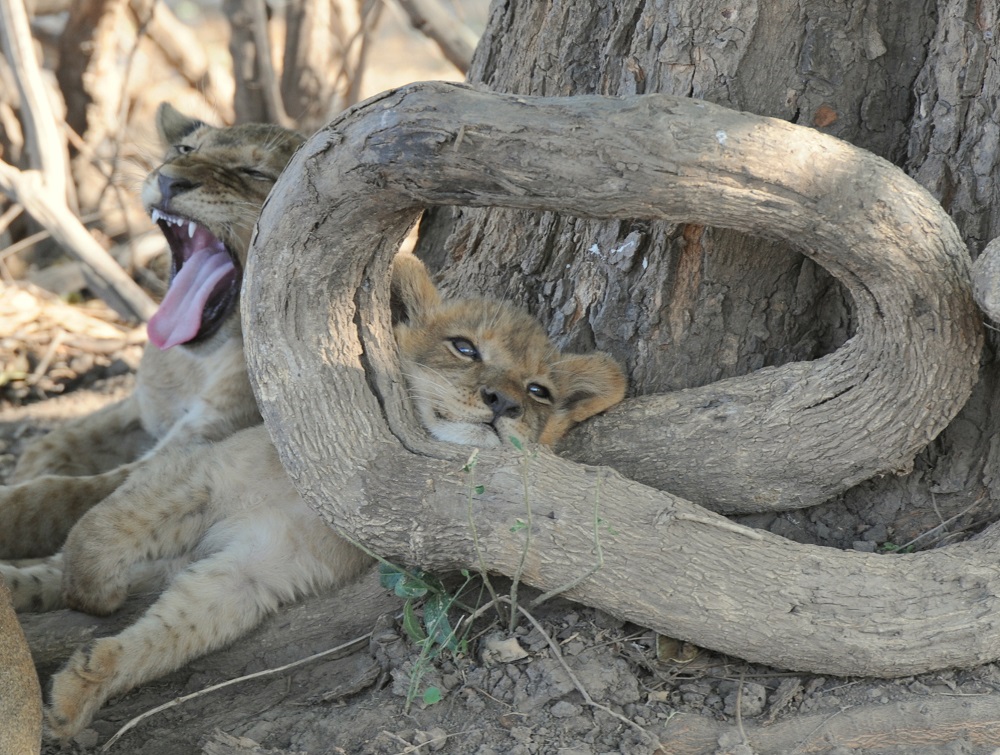
Lyndon is ready to answer any questions you may have about visiting the Mana Pools area of Zimbabwe, as well as Hwange, Matusadona National Park and Victoria Falls. He can be reached at lyndon@fisheaglesafaris.com or by calling our office any time (irrespective of your time zone) at 1-800-513-5222. One of us will call you back.
